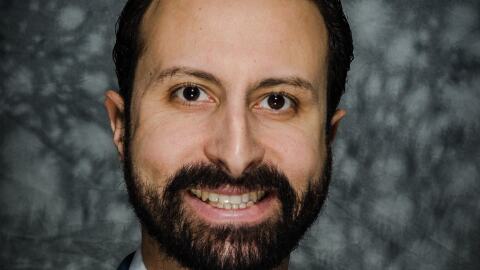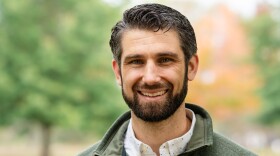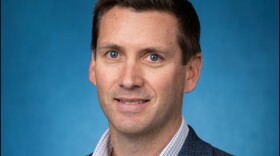-
This winter in Washtenaw County has been notably colder and snowier than most of the past decade. It has created inconveniences and hardships. But there may be some benefits to all of the snow and cold. Snowier winters play an important ecological role beyond what we experience at the surface. WEMU's David Fair was joined by U-M Biological Station researcher, Dr. Olivia Vought to explore this winter’s environmental benefits and how it all works.
-
Data centers continue to be a major topic of discussion and community concern. Right here in Washtenaw County, there are at least four data center projects proposed or in development. Washtenaw County Commissioner Yousef Rabhi opposed tax incentives while he was a state legislator and even more have passed since his departure. WEMU’s David Fair caught up with Rabhi to discuss his positions on AI and the need for data centers.
-
Ann Arbor is expecting progress towards its sustainability goals in 2026. Advancement on the voter-approved Sustainable Energy Utility will continue, and with the 2030 deadline rapidly approaching, more work is to be done to move ahead with the goals and aspirations of the city’s A2ZERO Carbon Neutrality plan. On the first "Issues of the Environment" of 2026, WEMU's David Fair explores the environmental year ahead with Ann Arbor’s Sustainability and Innovations Director, Missy Stults.
-
2025 is wrapping up, and one of the primary issues raised over the past year is the proliferation and impacts of data centers. In 2026, we're likely to see some of these centers move toward becoming operational. Weighing economic benefit against potential environmental harm will continue, and there will be more vocal support and outrage for each proposed center. WEMU's David Fair got together with Washtenaw County Resiliency Office Director Beth Gibbons to try and compute the impact of data centers in Washtenaw County.
-
When it comes to our local environment, 2025 has been a year of progress and one with significant and growing challenges. Environmental aspirations are being worked into place in almost direct opposition to changing federal priorities and policies. WEMU's David Fair reflected on 2025 in a conversation with Beth Gibbons, the Director of the Washtenaw County Resiliency Office.
-
A lot of folks are about to hit the road or the airports with Christmas right around the corner. Gregory Keoleian is the director of the U-M's Center for Sustainable Systems. He joined WEMU's David Fair to talk about how best to minimize our carbon footprint and still get to where we want to go.
-
The Ann Arbor School District is making progress toward making its bus fleet entirely electric. The goal is full electrification by 2035. There are challenges in getting to where the district wants to be in terms of funding, infrastructure and reliability. WEMU's David Fair talked with the district’s manager of construction projects, Moe Nagpal, to find out what the process and procedure looks like.
-
We are well into the holiday shopping season now. Analysts predict there will be more spending this year than last, despite all of the economic uncertainty around the country and here at home. There are ways to cut down on spending and to help the environment at the same time. WEMU's David Fair talked with Samuel McMullen from Ann Arbor-based Zerowaste.org about sustainable gift giving on a pre-holiday edition of "Issues of the Environment".
-
Brownfield projects in Washtenaw County are paying off. WEMU's David Fair explored the environmental and economic benefits these projects are providing with Nathan Voght from the Washtenaw County Brownfield Redevelopment Authority.
-
Washtenaw County is increasing efforts toward a more effective way of dealing with waste. 2023 amendments to the Natural Resources and Environmental Protection Act requires all Michigan counties to develop a new “Materials Management Plan” that emphasizes recycling, organics diversion, and sustainable materials management rather than focusing solely on landfill capacity. Its led to some forward thinking and action plans here in Washtenaw County. WEMU's David Fair discussed those programs with Theo Eggermont, Public Works Director for the Washtenaw County Water Resources Commissioner’s Office.
-
The federal administration has targeted environmental agencies and protection programs in its efforts to reshape the government. The Environmental Protection Agency has seen layoffs and firings and budget cuts. Now, there is a government shutdown creating more issues. WEMU's David Fair discussed immediate and longer-term impacts with Greg Dick, the Director of the Cooperative Institute of Great Lakes Research in Ann Arbor.
-
Ann Arbor is looking at something "blue" to expand its protection of drinking and other water sources. The new Bluebelt program will work in concert with the Greenbelt land preservation program to expand water protections. WEMU's David Fair was joined by City of Ann Arbor Land Acquisition Specialist, Rosie Pahl Donaldson, to discuss the goals of the program.
-
When the trees start changing colors, it’s a time of year where we create time to stop and take in the beauty of nature. It’s also a time where we can provide the care to the trees to ensure their health in the seasons to come. There are a number of diseases here and more creeping in that pose a threat to our trees. WEMU's David Fair discussed the challenges and what to do about it with Washtenaw County Conservation District community forester, Matt DeJonge.
-
The sun is helping some local residents identify the quality of the air. The City of Ann Arbor has launched a network of ten solar-powered air quality monitors placed across the city. Residents can now track local conditions through a publicly available online map and subscribe to receive station-specific alerts when air quality reaches "Unhealthy” levels. How does it work and what does it mean for the future? Find out in a conversation between WEMU's David Fair and Sean Reynolds, senior analyst for the city’s Office of Sustainability and Innovations.

















